CODING AS A PLAYGROUND IN OUR SCHOOL
29/10/21
By Kristina Milaj, Primary School Teacher at I. osnovna škola Bjelovar. Croatia.
The most important objectives in education are to prepare students for their future careers, develop a better understanding of the world and to motivate and inspire them to reach their own goals by following their passions in life. Due to that, schools have a responsibility to provide their students with all the tools and skills they need to succeed in the modern workplace. Increasingly, that means an ability to code, as coding and programming have emerged as some of the most desirable skills for employers. Furthermore, coding is a core skill that can help to develop a deeper understanding of how technology, which surrounds us like never before, works. Coding can also enhance problem-solving and language skills, and encourage some virtues such as perseverance, creativity and curiosity.
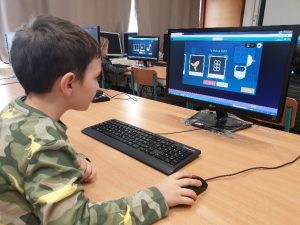
EU Code Week offers all students the possibility to make their first steps as digital creators. It introduces students to the world of coding in innovative and interesting way, it makes them motivated to explore the whole world of technology and that’s why teachers should try to bring Code Week to classrooms as much as they can, every year.
This year, 1st Primary School in Bjelovar was very active in contributing to the success of Code Week. Students were programming in Tynker and JavaScript editor (Microsoft MakeCode), drawing in a pixel drawing tool, programming the characters’ path through the mazes to the given goal in playful unplugged activities, solving sequence recognition puzzles and riddles and learning about artificial intelligence while training an AI robot.
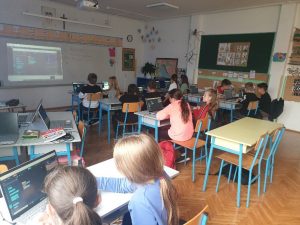
During the activity “Tynker – EU Code Week 2021 Challenge“, students aged 10 to 11 were preparing for programming in the Tynker program through preparatory game-like activities (they were getting to know the program interface, comparing the possibilities of Tynker and Scratch, remembering mode of operation, etc.), programming dance and character conversation, and then evaluating their work.
Since this activity was one of the 18 challenges listed on the EU Code Week webpage, we shared our work on Facebook and won the prize!
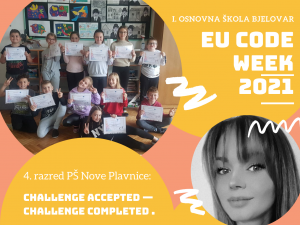
In the second challenge we accepted, in the activity named “Calming LEDs: micro: bit – EU Code Week 2021 Challenge” students aged 11 to 12 created a digital device using LEDs that can help them regulate their breathing and feel calmer. They wrote simple code, and explored animations and sequences.
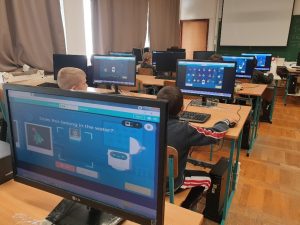
The third challenge, the activity “AI for Oceans – EU Code Week 2021 Challenge” was based on training AI robots to recognize fish or trash. Students aged 7 to 8 learned about artificial intelligence (AI), machine learning, training data, and bias, while they were exploring ethical issues and how AI can be used to address world problems.
But, we didn’t do “challenge activities” only. We completed our own and had a lot of fun!
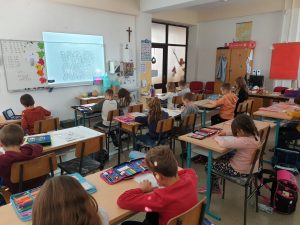
In activity named “NiZ” because “N” is for the Croatian word “niz” which means “sequence”, “i” is Croatian “and”, and the last one, the letter “Z” is for the Croatian word “zagonetka” which means “riddle”, students aged 6 to 7 were solving Sudoku and similar sequence recognition puzzles and when they had their brain totally hooked up, they were solving riddles (as short breaks).
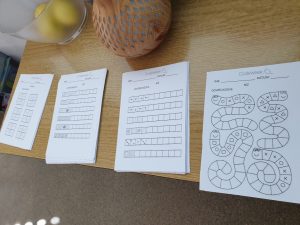
In the activity “Unplugged coding” students aged 9 to 10 were, instead of computers, using writing utensils and paper as well as some physical objects (illustrations on cards) with the aim of understanding the basic computer concepts in a friendly and familiar way.
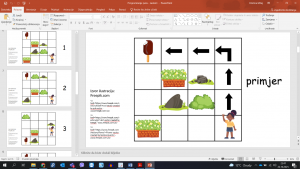
Students were developing programming skills through playful activities. They were writing step-by-step instructions to program the characters’ path through the mazes to the given goal.
And lastly, students aged 9 to 10 had a great time drawing in the pixel drawing tool. In this activity, activity I simply named “Pixel Art” students were developing skills like spotting details and innovating creative solutions to meet very specific needs (devising strategies to overcome limitations of technology). Since they worked in a space limited by the number of pixels, students were also developing planning and spatial skills.
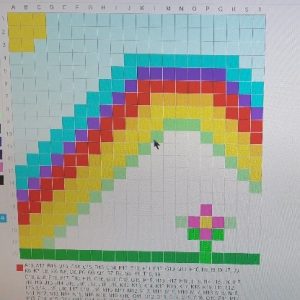
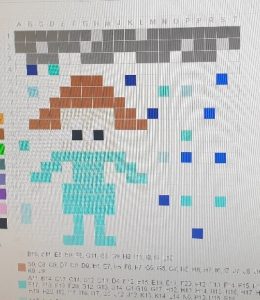
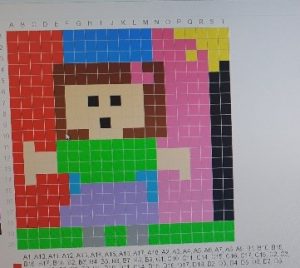
EU Code Week fans – see you next year!


